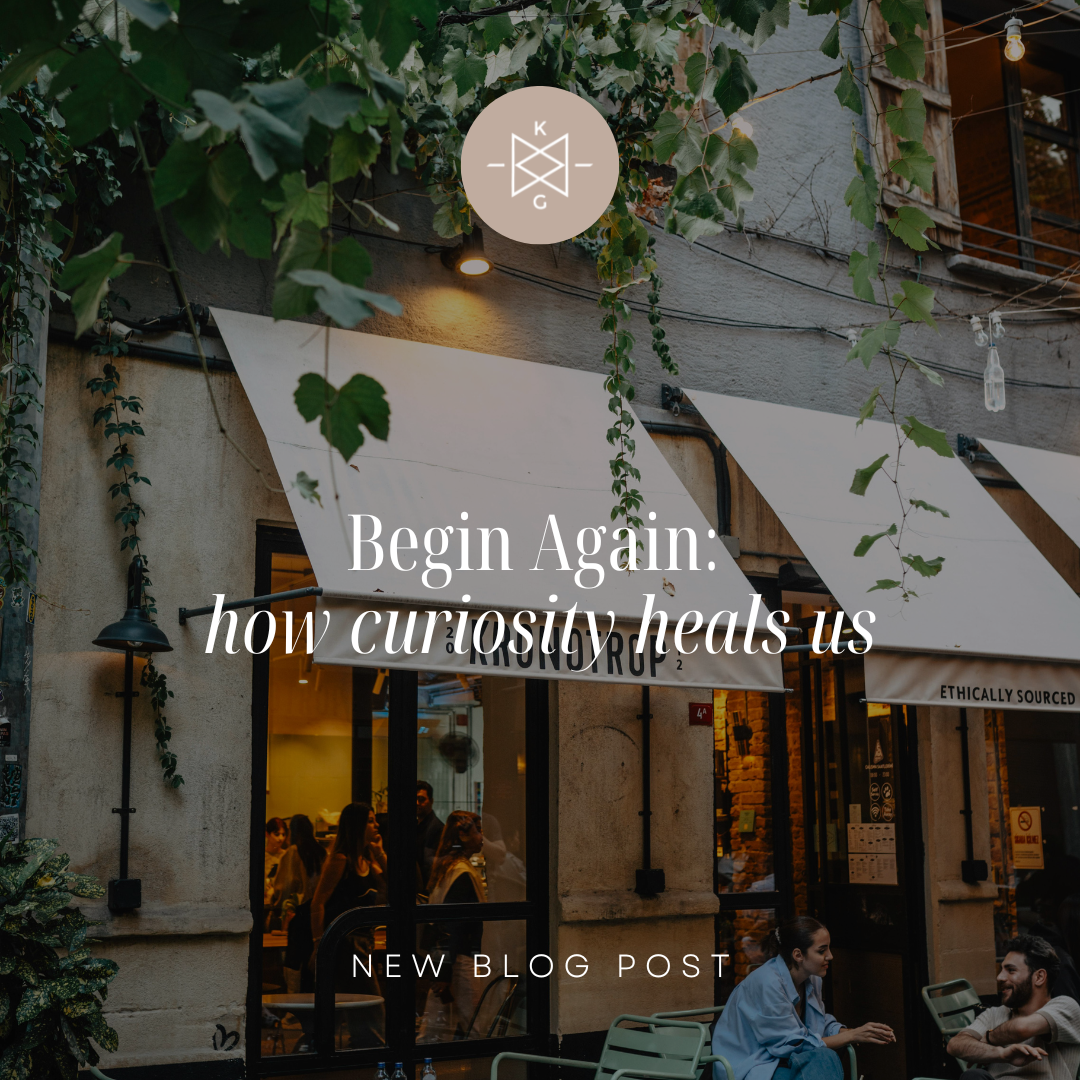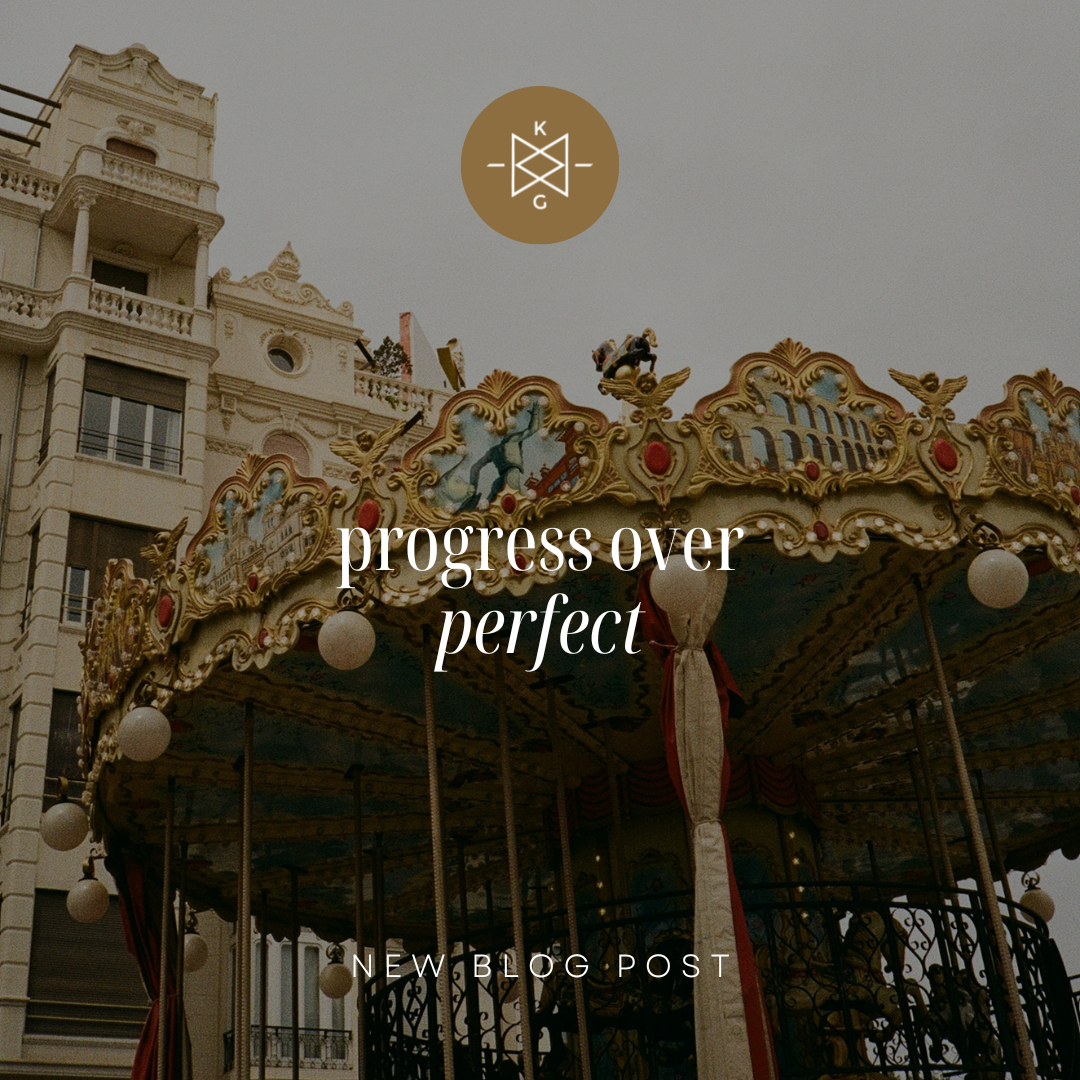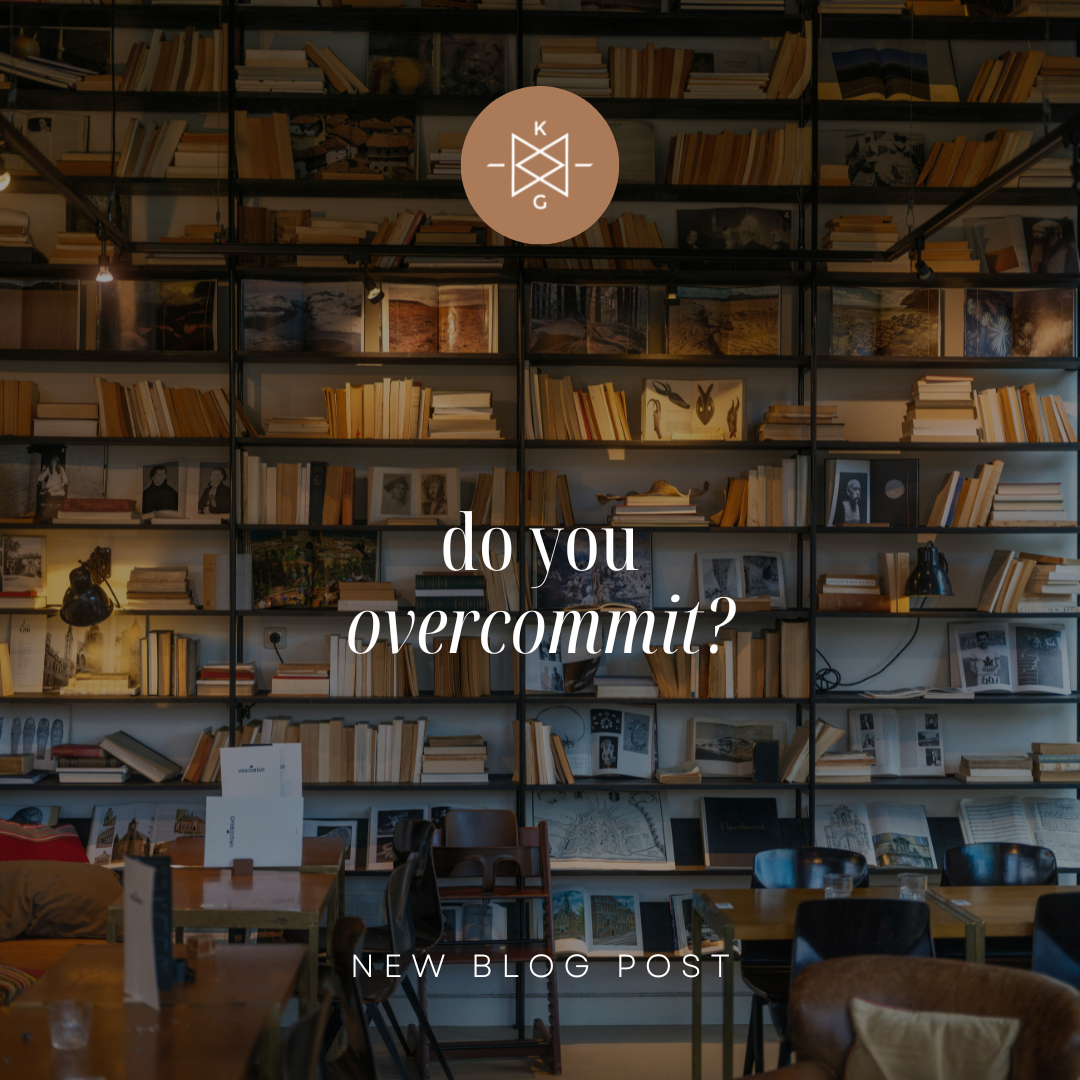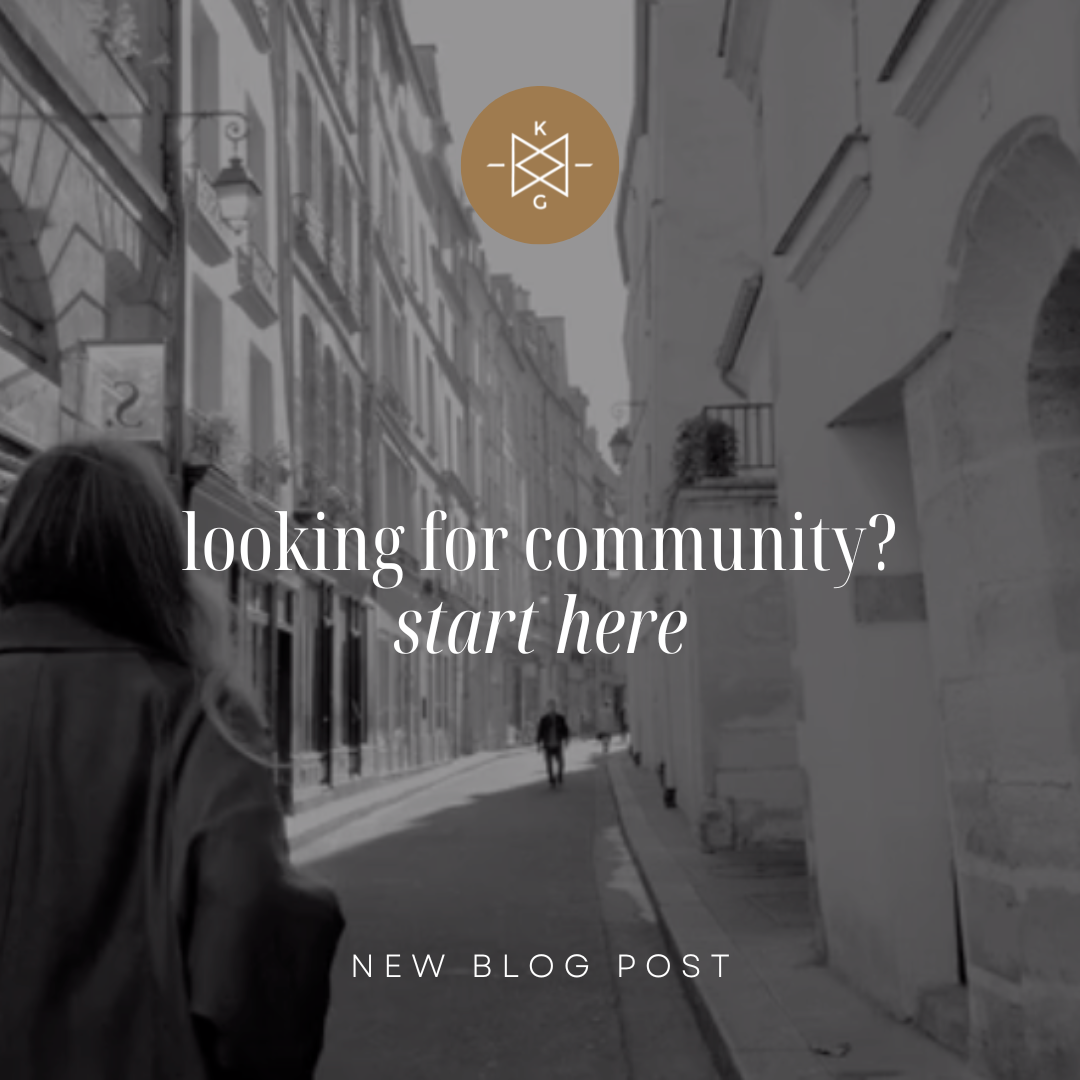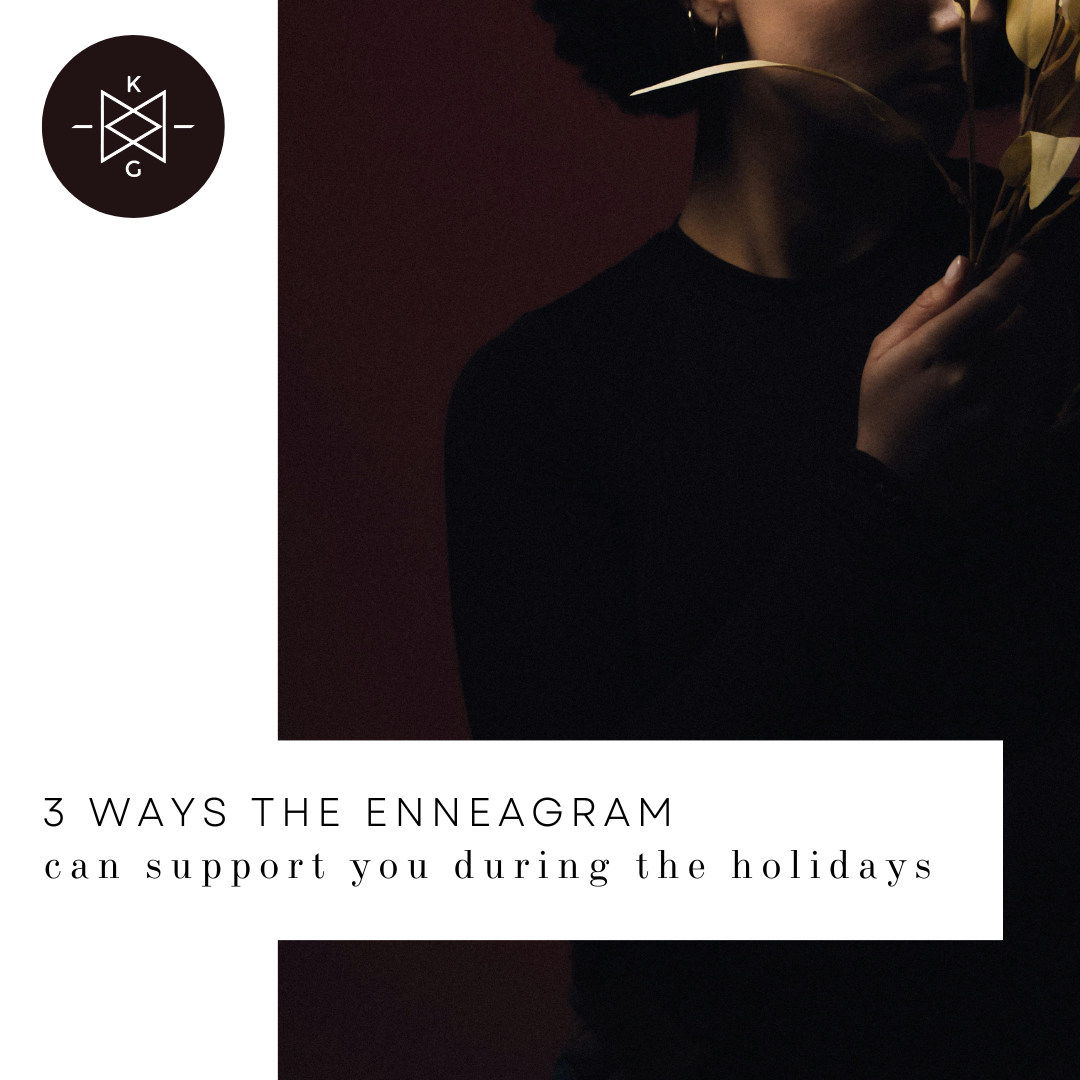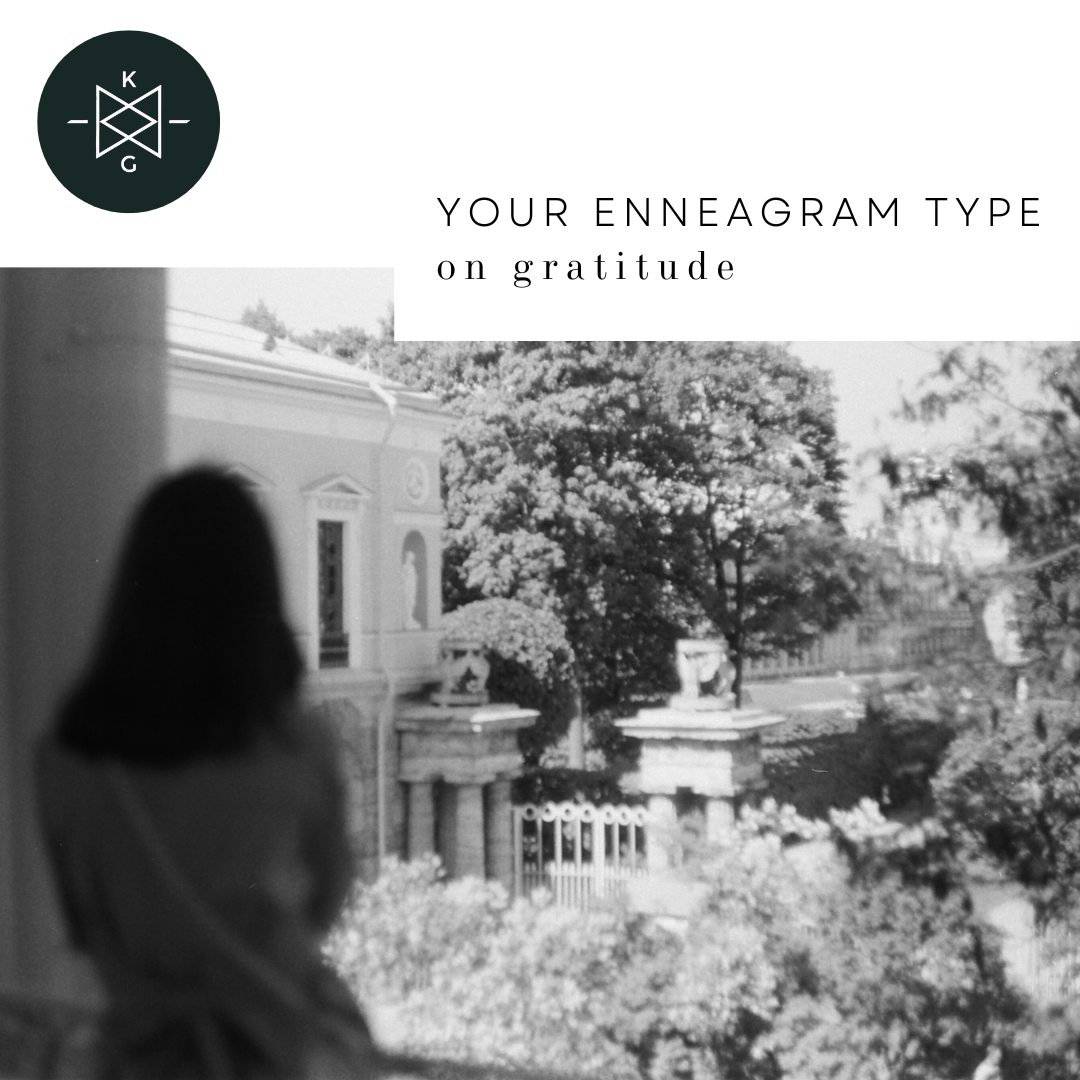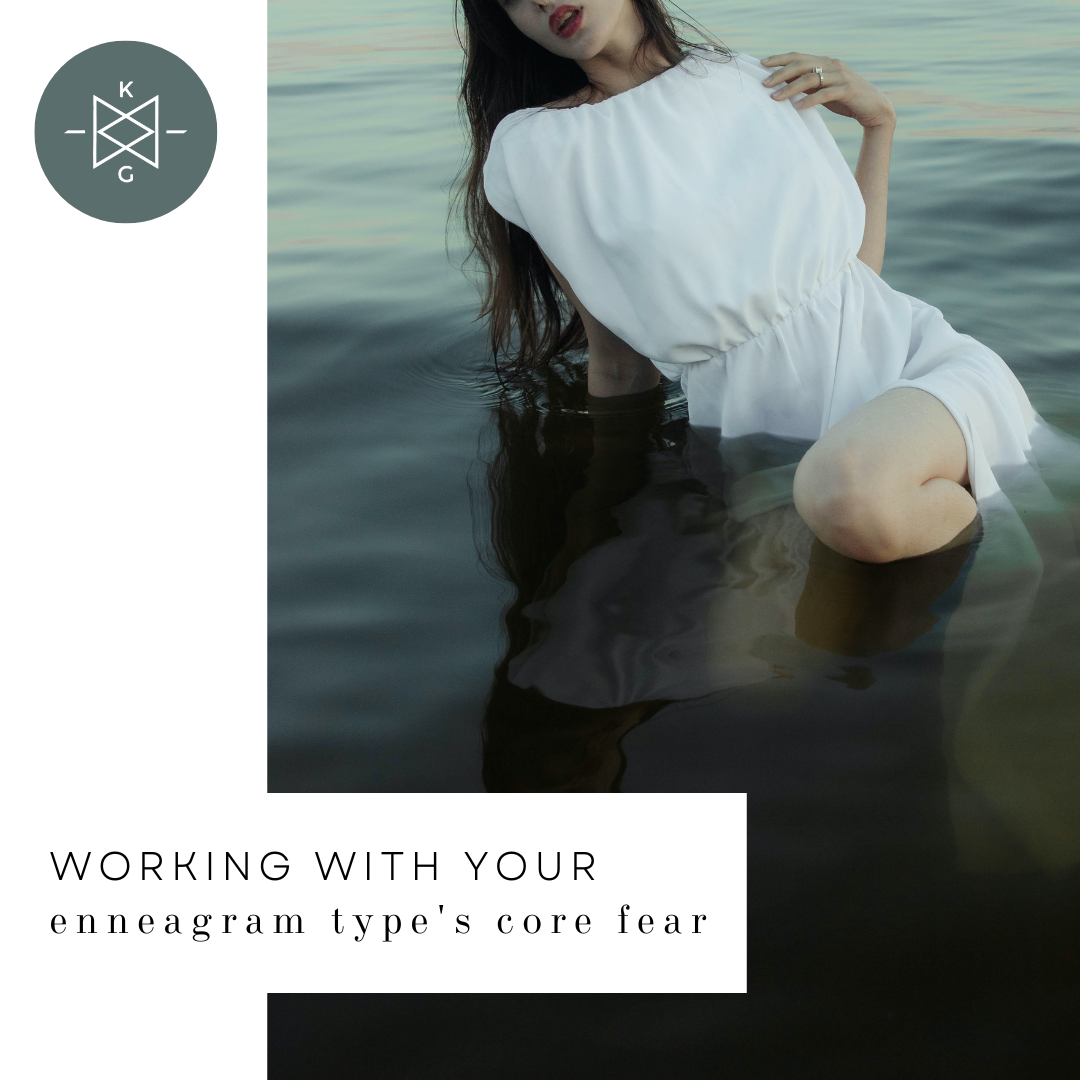
The Blog
Recently Featured
All Blogs
3 Ways the Enneagram Can Support You During the Holidays
It’s the most wonderful time of the year…so why doesn’t it feel that way? For many, the holidays can feel more lonely and anxious than merry and bright. When we put high expectations on anything, it tends to snuff out the pure joy and wonder of it. I know you know this, and yet it still feels awfully difficult to move through the season with a realistic, unbothered approach.
I firmly believe the Enneagram can help. Here are a few ways how:
As you well know, the Enneagram helps illuminate the inner workings of our personalities. In showing you the motivations behind why you do the things you do, for better or for worse, it invites you into greater self-awareness and self-knowledge. This is crucial as we move through stressful experiences (that awkward Thanksgiving meal with Uncle what’s-his-name and his new girlfriend). This is important because we obviously can’t control others around us but we can have the space of self-awareness to observe how we respond to the season’s events. And I do mean respond…not react!
In step with this, the Enneagram is a map. It shows you when you’re on the right track and when you’ve taken a treacherous wrong turn south to the land of victim, people pleaser, avoidance, isolation, martyr—even control freak (who me?). By giving you awareness as to where you go in times of stress and security in your type, the Enneagram gives us road signs, moment to moment, so as to keep us moving in the right direction. It’s like your very own Waze app on the open roads of holiday chaos.
The Enneagram helps us stay curious and compassionate both to ourselves and the collection of friends and family we’re surrounded by this time of year. Sure, the Enneagram is all about self understanding, but that’s just the beginning. As we are better able to understand ourselves and others around us, we are more likely to move towards them—to have generosity of spirit instead of a critical mind. We learn to have a kinder dialog towards ourselves and others and have greater compassion for others and why they do the things they do. And don’t forget! Sometimes this compassion looks like saying no instead of yes to that umpteenth holiday gathering! Or that piece of pie…or that gift you really can’t afford. Compassion combines love and limits.
Don’t worry, I’ll be hanging out a bunch in your inbox this season! Cheers!
Love & Gratitude,
Katie
P.S. If you’re looking to stay tethered to some enneagram-based self-care this holiday season, give yourself the gift of The Practice.
Your Enneagram Type on Gratitude
“This is a wonderful day, I have never seen this one before.”
-Maya Angelou
In just a few weeks, many of us will gather around a table topped with a smattering of delectable turkey variations and some comfy, butter-laced sides—throw in a few pies, and give thanks for all the good things in this life. We will do our best to keep the conversation above board, leaving family grievances and politics at the door. We will go back for seconds, even though dessert looms large. A food coma ensues. Is Thanksgiving the original “cheat day?” Hmmm…perhaps. Leave it to America to super size an otherwise satisfying Thursday lunch.
After all, to every other country, Thanksgiving is just another Thursday. Yet it’s my favorite. A holiday built on gratitude and a decadent meal? Without the hassle of gifts? I’m in.
In today’s furiously fast and heavy climate, we must not lose sight of gratitude, and not just on one particularly famous Thursday of the year. We must make gratitude a practice.
Gratitude is not just something we do to feel better about life. It’s not denying reality or always finding the sliver lining. It’s far more powerful than that.
Over time, gratitude has the power to rewire your brain for more overall fulfillment in life and relationships. As humans, we have what’s called a negativity bias. We are biologically wired for survival. Primal man relied on this negativity bias to wake up the next morning and live another day in a highly dangerous world. However, in our modern day world, we don’t need this high alert survival bent as we once did. Sure, it’s kept us alive as a species through the ages, however, thankfully most of us have our basic needs of food, shelter, and safety met.
Gratitude is saying yes to what is good, true, and beautiful—it’s the practice of nurturing hope in our lives. Sometimes it’s accepting the challenging parts of life that have helped us grow and heal. It is an intentional practice that sees the often grim reality of life—acknowledges it— accepts it—AND chooses to see life from a higher, more spiritual perspective.
Today, I want to run through the things that get in the way of a gratitude practice for each Enneagram type.
Type 1: Perfectionism!!! What a sham! Type Ones have such a high standard for themselves and the world around them, they often miss out on what’s good and right in their lives.
Type 2: Guilt often clouds gratitude for these nurturing souls. The feeling that they aren’t doing enough for others or a tendency to carry the weight of the world can be all consuming.
Type 3: Busyness can distract these success-oriented doers from gratitude. The constant need to achieve and move things forward will take center stage for Threes if they aren’t consciously aware of their pattern.
Type 4: Longing for what’s missing tends to derail these sensitive, idealistic people from gratitude. The melancholy that feels so comfortable becomes a real hinderance as a result.
Type 5: Scarcity can easily get in the way of Fives as they live out of a place of hyper self-sufficiency that can border on stinginess.
Type 6: Fear and doubt go neck and neck with gratitude for Sixes. As great problem solvers, they can often be problem seekers.
Type 7: Toxic positivity can keep Sevens in a constant state of avoidance of reality. Though they can seem like the most grateful, they often bypass the whole of true gratitude which is appreciating the light and dark parts of life.
Type 8: Control and impact can often leave softer concepts like gratitude feeling weak or besides the point. Their constant forward momentum distract a grateful heart.
Type 9: Laziness or numbing when it comes to their own process and development can distract Nines from developing their own gratitude practice (or any practice). Their constant focus on other people can be a real roadblock.
As we move through the season, consider the things that might get in the way of something so beautiful—so simple—and so powerful…gratitude.
Working with Your Enneagram Type's Core Fear
“…But trailing clouds of Glory do we come
From God who is our home:
Heaven lies about us in our infancy… “
-William Wordsworth
What a lovely picture Wordsworth paints. We come into this world as open, vulnerable, innocent, and curious souls. We come full of goodness, devoid of shame. Ah, but it doesn’t take long to discover this world and its inhabitants are highly imperfect. We quickly learn in our early years that we are not entirely safe and must act to self-protect and get our needs, basic and developmental, met by the important people around us. The “glory” starts to dim. This is the making of our little personalities. And they’re brilliant! Yet not ultimately helpful in adulthood.
And here’s the kicker: these patterns of strategy are built around fear born out of specific childhood wounds. We all have them. Some are more benign than others, oh but it’s there alright.
The Enneagram teaches there are nine core patterns of personality in the world (27 if you count subtypes!). You and I gravitated towards one in particular in early childhood based on the landscape of our early life experiences. These personalities are incredibly helpful for sniffing out and avoiding anything that may remotely remind us of our childhood wounding. After all, human beings are wired for survival, and our neurobiology and personality patterns are the most effective ways to do just that and stay safe.
I recently sat down with Kelly Henderson for really special conversation on her podcast, Velvet’s Edge. In honor of Halloween, we talked in depth about how to work with your Enneagram type’s specific core fear. I’d love for you to check that out.
Today, I wanted to give you a basic understanding of each Enneagram type’s core fear. If you are unsure of your type, these will also bring more clarity to you as you identify with the your unique experience of fear throughout the years.
Let’s dive in.
Type One’s fear being bad, corrupt, and ultimately unworthy. Often, you hear type ones describe a difficult experience where they were publicly embarrassed, called out, or humiliated. As Improvers, they learned early on how good it felt to do the right thing and behave according to the rules. As a result, they have unrealistic high expectations of themselves and others and often feel trapped by their loud inner critic and perfectionistic tendencies.
Type Two’s fear being unloveable. Early on, they had a love need that didn’t get met, and they spend their time and energy ensuring connection with others in relationship, often engineered by giving and helping. As a result, they live their lives asleep to their own needs and desires and often only know themselves in relation to other people.
Type Three’s fear failure and being without value. As a result, they are driven to success at all costs. Early on, they garnered love and acceptance through their impressive achievements which gave them their sense of worth and value. They learned to turn off their emotions and disconnect from their true selves in order to get the job done and look good doing it, often becoming deceitful to self and others.
Type Four’s fear being deficient and ultimately rejected or abandoned. Many fours describe an early actual or perceived experience of loss of love—and as a result—abandonment or deprivation. The story they make up in their head is that somehow they caused this. So they spend a great deal of time and energy focusing on how to somehow reverse this with the ideal relationship or situation. This normally always involves being seen as special and unique. In the process, they can become self-absorbed, hot-and-cold, and chronically melancholic.
Type Fives fear being useless, incompetent, and helpless. Their early experience often involves being neglected or engulfed by caregivers whom they needed in order to survive. They were somehow unaware and unresponsive of their needs which forced little fives to go inward, detatch, and hold onto the little they had. Their survival came from their ability to acquire knowledge and understanding as well as their self-sufficiency. In the process they became emotionally and physically cut-off from the world and often stingy, both emotionally and practically.
Type Sixes fear being without support and guidance. As little people, they often describe being in threatening ongoing situations and as a result, they developed a belief that the world was a dangerous place. The prototypical “fear” type, sixes focus their time and energy on safety and security as well as feeling supported. As excellent problem solvers, sixes can often become real problem seekers and worst-case scenario thinkers.
Type Sevens fear being trapped or in pain. Young sevens often describe a difficult relationship with one parental figure (often maternal) that was overbearing, stern, and dominant. (Can also work the other way with the paternal caregiver.) Based on this early experience, they believe that authority equals limitation, and much like eights, despise being told what to do. As a result, they like to keep things open and exciting with lots of options. In the process, they can become scattered, disconnected from reality, and unable to integrate the normal pain of life into their experience.
Type Eights fear being weak or controlled by others. Many eights describe a combative or conflict ridden early childhood where they had to grow up fast in order to survive. They had to disconnect from their childlike innocence because of a lack of protection of some type of deprivation. As a result, eights avoid weakness and being controlled by others at all cost and can be experienced as dominating, excessive, and overly impactful.
Type 9’s fear loss or disconnection. They often describe an early experience where their opinions didn’t matter or weren’t heard. Perhaps their were others who had louder voices or opinions, or they were overlooked somehow. So in order to feel calm and secure, they went along with what others wanted. Through this experience of being overlooked or overpowered, they become expert in accommodating the needs, desires, and agendas of others. As a result, much like two’s, they become overly dependent on others and feel that their presence in the world doesn’t matter.
Which type’s core fear speaks the loudest to you?
Walk This Way! New walking meditations just dropped
“Life is movement. The more life there is, the more flexibility there is. The more fluid you are, the more you are alive.“
-Arnaud Desjardins
I hear it often, “meditation isn’t really for me. I can’t seem to sit still that long.”
I get it. It’s hard to pin me down in the same place for more than ten minutes (especially with a toddler.)
And while I do feel there is such value in truly taking time to sit in stillness with ourselves and our experience, I believe there are many ways to get the benefits from meditation.
The truth is, there are many paths to presence.
That’s what I’m so thrilled to share newest member of the Practice with you today: walking meditations—the beautiful marriage of movement and mindfulness.
Here’s the backstory:
I created The Practice, an Enneagram-based self-care toolkit, for monthly members to take advantage of and learn how to put the Enneagram to work in their lives and practice specialized self-care in the process. After all, the Enneagram is a holistic tool, mind-body-spirit.
It’s been an absolute blast creating content from week to week and the community that’s developed over the course of a year has been truly invaluable. However, I felt there was something missing.
I’m convinced physical movement is central to our personal growth and healing. If there was one form of self-care I simply couldn’t live without it is daily mindful movement…or is it meditation? Oof!
So I began to ask myself, “how can I provide a way for members to be more efficient in their self-care, killing two birds with one stone: meditation and movement?”
You guessed it, walking meditations, my guided meditations over vibe-y, inspirational music written and produced by some of my favorite musicians and writers in Nashville. We started building out these tracks two years ago and have been gradually releasing them to the Practice dashboard for you.
We will be releasing new walking meditations each month on the Practice for you to take with you to your favorite hiking and walking trails in order to move with greater intention and presence, creating more space to process emotions and connect to nature. I think you’re going to love them. I sure do.
Join the Practice today and get moving!
How to get out of your own way
“The good news is that opportunities for love enter our lives unpredictably, whether or not we’ve perfected self-compassion or befriended our inner critic.”
―Sharon Salzberg
Have you ever felt like you are your own worst enemy? If you could only get out of your own way, life might be a lot easier?
Me too. I often feel I wrote the book on self-sabotage.
I’ll never forget sitting in my old therapists office about eight years ago and hearing the strangest homework assignment I’d ever gotten to date. Here’s what he said,
“Katie, I want you to spend the whole week simply being a student of you and your experience.”
“Excuse me?” I thought to myself as I quizzically stared back at him like he had eight heads. This would be interesting…
This seemed nearly impossible at the time because I’d become so accustomed to ruthlessly judging myself without even noticing. To merely “observe” or “witness” my daily experience would require me to slow down that automatic self-criticism. It would require me to be a neutral audience. This in turn, would require me to be a bit…kind?
It was perhaps the most profound assignment I’d ever been given. I felt as if a heavy weight had been lifted from my weary frame. I remember feeling curious, even intrigued by myself and my behaviors. Miraculously, I’ve never done drugs before, but this little experiment felt as close as I’d gotten up until that point. It was out-of-body.
Part of my lifelong work has been learning to grow that neutral observer, or inner witness, inside that allows for self-awareness and compassion to take root and grow over time. The more curious we can get about anything, the less time we spend in rigid judgment. As a result, we move from a fixed mindset to a growth one. Otherwise, we live in reaction mode, constantly being triggered and judging ourselves and others. Not a good look.
Here’s two things I’ve learned about human nature:
99.999999% of us have a pretty nasty inner critic at some point along the way. Human beings, by nature, have a negative bias. As the saying goes, “we are our own worst critic.”
It’s much easier to react out of emotion than respond out of self-awareness.
I also believe you are your absolute greatest asset in this life. However, in order to be MVP on your own team, you may need to clean out the dank and dusty attic of your thoughts, like I constantly do.
So try this…
Assume the role of a neutral observer, a student if you will. Pretend like you’re doing research for a project and any and every bit of information is fair game. It’s okay if you bounce back into the judgment seat. That’s good information too! Record your findings with this journaling prompt:
What do I noticing about myself and my experience? How can I be more curious throughout the day?
If you get discouraged along the way, take heart. In a science experiment, everything is good information, even failure. And remember, you are the ultimate expert at you.
